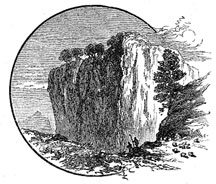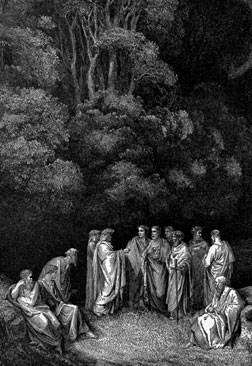
P.O. Box 1333
Merchantville NJ 08109, USA
Email: info@arxpub.com
 |
Arx
Publishing, LLC P.O. Box 1333 Merchantville NJ 08109, USA Email: info@arxpub.com |
|
|
|
||
 |
THE Tarpeian Rock An Annual Literary Magazine "Hinc ad Tarpeiam sedem et Capitolia ducit aurea nunc, olim siluestribus horrida dumis." --Virgil's Aeneid, VIII, l. 347-8 |
Articles
from the 2005 issue... People Don't Write That Way Anymore Return to Tarpeian Rock homepage |
 |
| Dante, Vergil, and the classical
poets by Doré. |